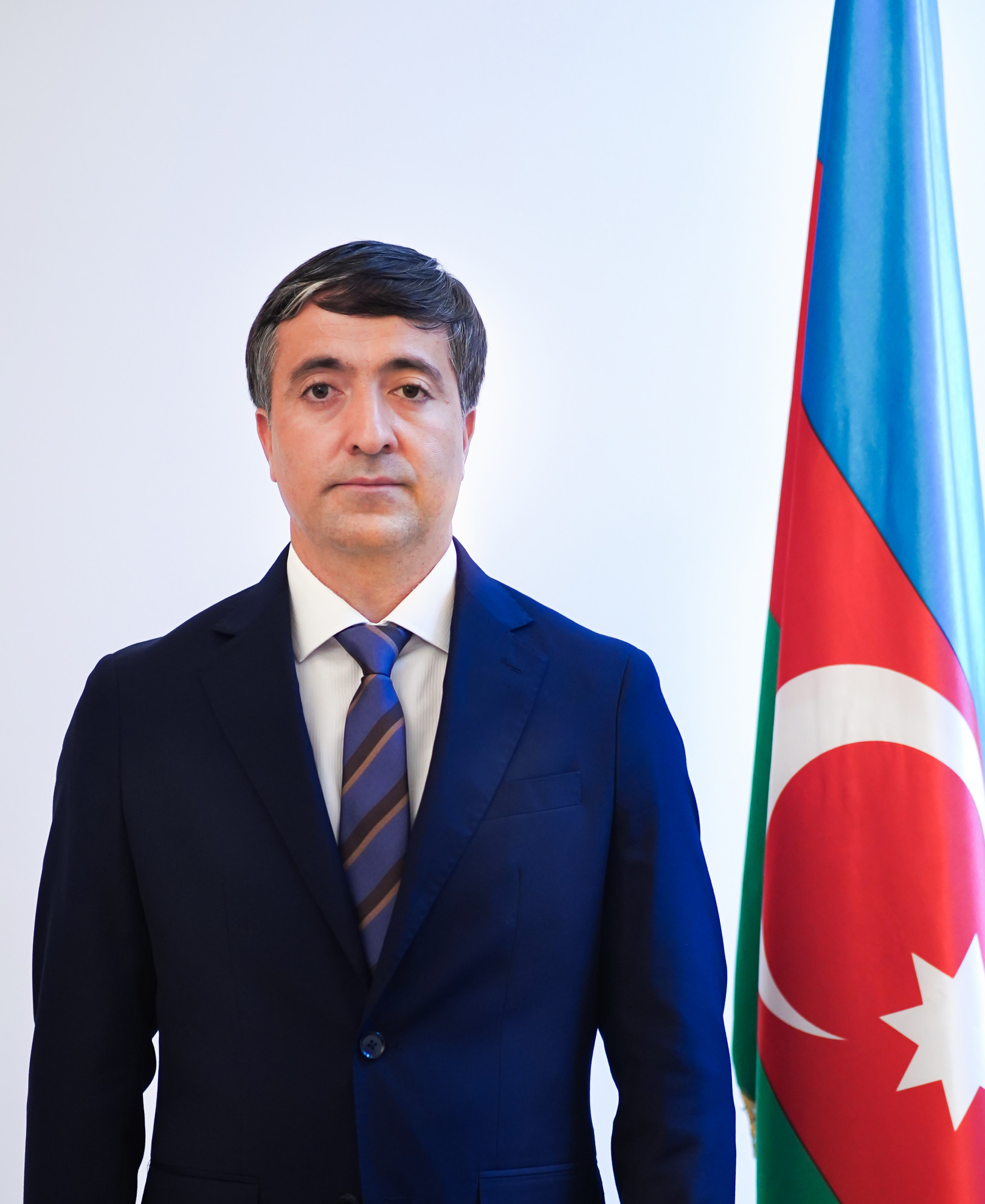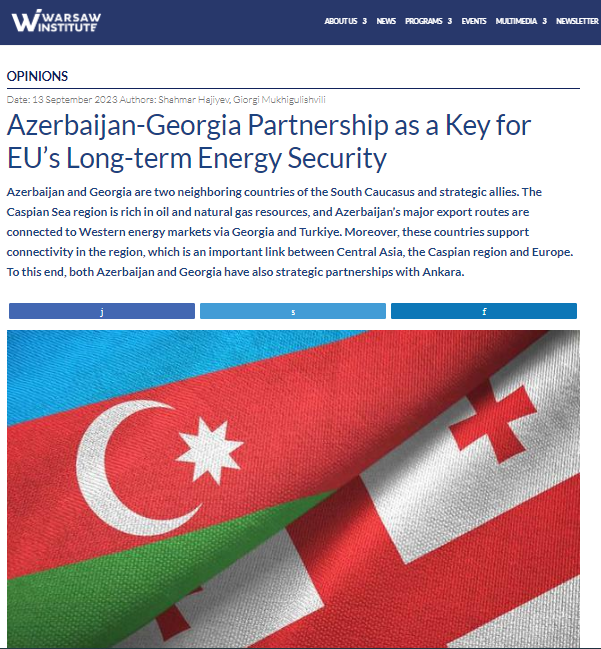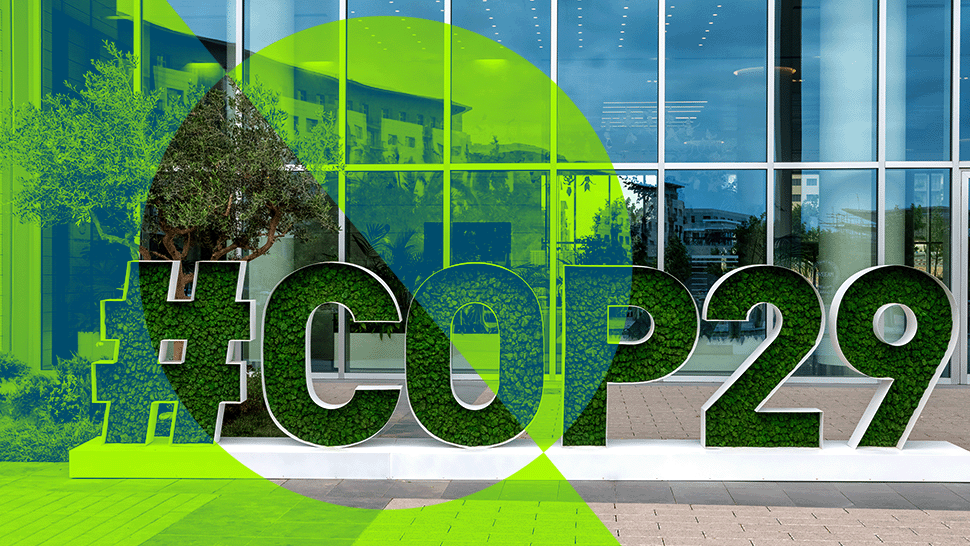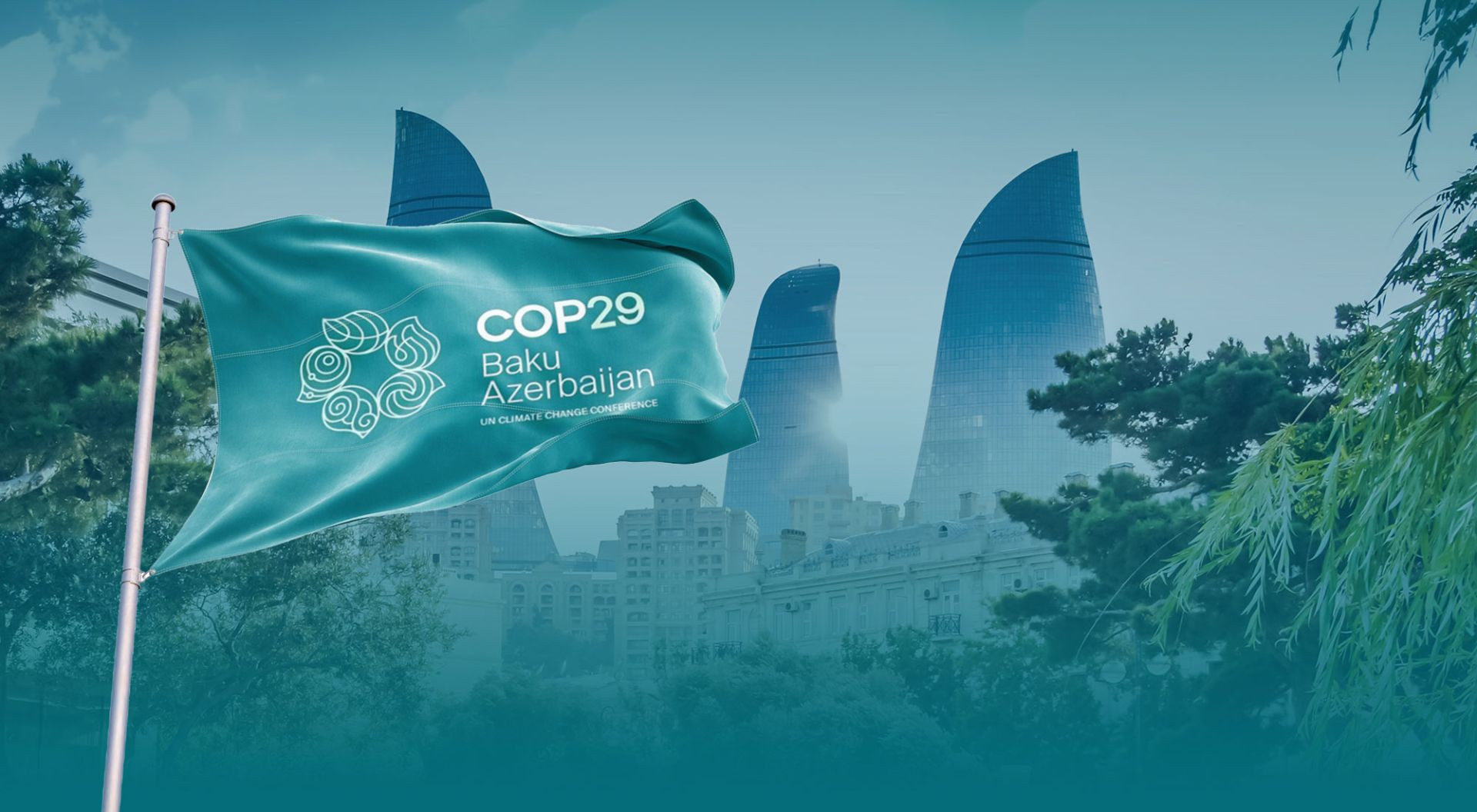Azerbaijan and Georgia are two neighboring countries of the South Caucasus and strategic allies. The Caspian Sea region is rich in oil and natural gas resources, and Azerbaijan’s major export routes are connected to Western energy markets via Georgia and Turkiye. Moreover, these countries support connectivity in the region, which is an important link between Central Asia, the Caspian region and Europe. To this end, both Azerbaijan and Georgia have also strategic partnerships with Ankara.
The Russia-Ukraine war has already changed the geo-political landscape of Eurasia, and the Azerbaijan-Georgia partnership supports Europe’s energy security. Following the Western sanctions on the Russian energy sector, and Russia’s switching off of natural gas supplies, natural gas and electricity prices have risen to record levels in Europe. Russian natural gas imports have decreased, and year-on-year comparisons show a staggering 90% drop not only in the transit route through Belarus but also in those via Nord Stream (−12%), Ukraine (−51%) and TurkStream (−14%).
Now, the key objectives of the EU energy strategy are diversification of energy supplies and sources and to become more energy “independent” by saving energy, producing more local renewable energy, which is crucial for long-term energy security. To this end, the EU has intensified negotiations with reliable energy partners to purchase additional natural gas. An essential part of EU planning is to purchase LNG from the USA, Qatar, Algeria, the UAE and others. For instance, the USA continues to send more LNG to Europe to support the continent’s energy demand. So, the US LNG supplies helped European energy consumers to decrease dependence on Russian natural gas. However, the higher shipments to Europe left fewer cargoes for Asia, Latin America and others. Moreover, according to the International Energy Agency (IEA), if the competition for LNG supplies increases, due to the demand from China rebounds, and Europe’s mild winter temperatures will not continue, then the EU could face a shortage of 30 bcm of natural gas in 2023. To this end, it is worth noting that Azerbaijan’s natural gas exports to Europe have risen significantly since 2021, and the plan is to reach 11.6 bcm in 2023. However, the existing infrastructure in the Southern Gas Corridor (SGC) is currently insufficient to transport the amount of energy that Europe needs in the short term. Although the Trans Adriatic Pipeline’s (TAP) capacity can be enhanced up to 17,2 bcm if Turkiye delivers its portion of the Trans Anatolian Natural Gas Pipeline (5.6 bcm in 2022) to the EU, by saving gas through energy efficiency, increasing the share of renewables, purchasing LNG or import from other sources, the additional volume of gas would account for about 19% of the possible natural gas shortage in the EU. Even with an extra gas volume, it will not be enough to fully substitute Russian gas. However, the volumes from Azerbaijan will help South-Eastern Europe to decrease energy dependence on a single supplier.
Besides fossil fuels, renewable energy resources in Central Asia and the South Caucasus are so abundant that they can easily meet the growing energy demand of Europe in the medium and long- term. These resources can also contribute to achieving the target rate- 42.5% (by 2030) of renewable energy in Europe. In addition, Central Asian countries, especially Kazakhstan and Uzbekistan, are rich in critical minerals, which are important raw materials in the production of renewable energy technologies. This further increases the competitiveness of the region and creates a favorable environment for investments.
All the abovementioned supports strategic importance of Azerbaijan and Georgia for the West. Azerbaijan – EU opened a new page for strategic partnership by signing important documents which support not only the export of fossil fuels but also renewable energy from the region to Europe. The “Memorandum of Understanding on a Strategic Partnership in the Field of Energy” (MoU) signed on July 18, 2022, opened up new opportunities for both sides. Azerbaijan will increase natural gas export to Europe via TAP and reach at least 20 bcm per year by 2027. Another important opportunity is export of green energy to Europe. By this, the country will support the REPowerEU plan, which is based on three pillars: saving energy, producing clean energy and diversifying the EU’s energy supplies.
Georgia also supports close cooperation with the EU. The EU-Georgia Association Agreement (AA), including a Deep and Comprehensive Free Trade Area (DCFTA) and Georgia’s membership in the Energy Community create a cooperation framework in the field of energy between the parties. This is an opportunity for Georgia to get even closer to the European Union by transposing and implementing EU energy acquis in its legislation. Georgia implemented significant reforms for the development of renewable energy and energy-efficiency. It has implemented institutional reforms and supported the projects that enhanced both its own energy security and that of the European Union. Oil, gas, and other trading goods have been transported through Georgia by road, railway, pipelines, and ports of the Black Sea for decades. Georgia has proved that it is a reliable transit country for the EU.
Moreover, a favorable geopolitical location allows Georgia to become an educational hub in the region, a center of research that will promote green transition, energy security, peacemaking and keeping in the region. Initiating projects of strategic importance that will reinforce the Middle Corridor will be facilitated by attracting students and researchers from neighboring countries, Central Asia, and the EU.
Against the backdrop of energy crisis, Azerbaijan and Georgia have made significant contributions to the development of the regional connectivity and energy transit infrastructure, connecting East and West and enhancing the EU’s energy security. Georgia with Azerbaijan, Romania and Hungary signed an agreement on development of the high-voltage submarine electricity cable under the Black Sea at a meeting in Bucharest on December 17, 2022. It will be the longest power cable underwater in the world, aiming to connect the South Caucasus region with South-Eastern Europe, involving the electricity systems of these countries and continental Europe. Within the framework of the project, with power cable high-speed fiber optic internet cable is also considered, which will increase the security of information transmission between the regions.
As it can be seen, Georgia and Azerbaijan are key players in the emerging Middle Corridor, which can have significant economic and political implications for Central Asian, South Caucasus and the EU, including economic diversification, enhanced regional integration, and reduced dependence on Russia. The corridor can change the geopolitics and security environment in the region for the better and become a guarantee of peace and cooperation.
In the end, the two countries are committed to continuing their cooperation and working together to achieve their common goals. Azerbaijan and Georgia will keep playing a greater part in ensuring global food, energy and transportation security. Their partnership can serve as a role model for Central Asian countries for cooperation and further regional integration.








